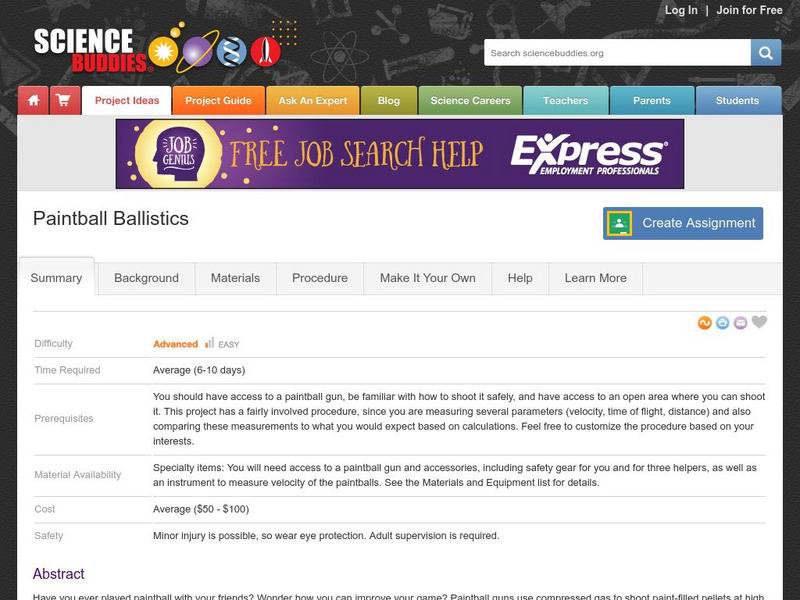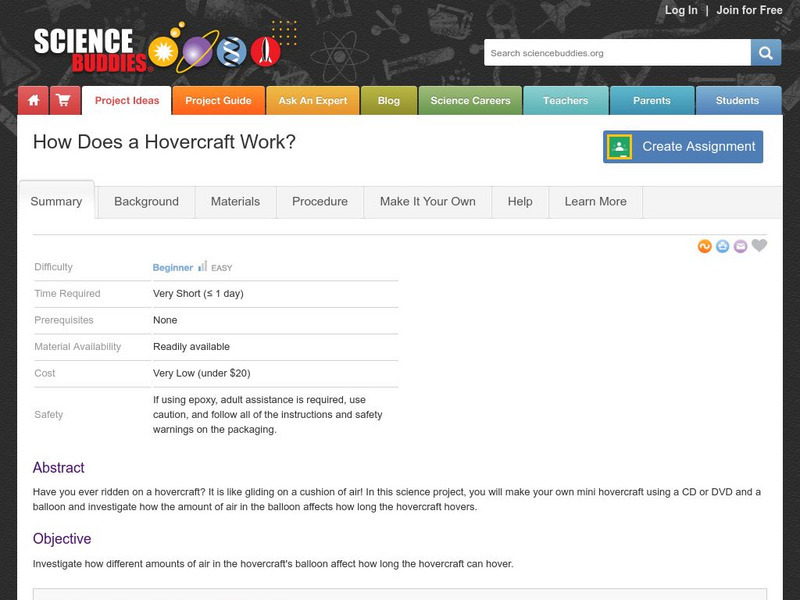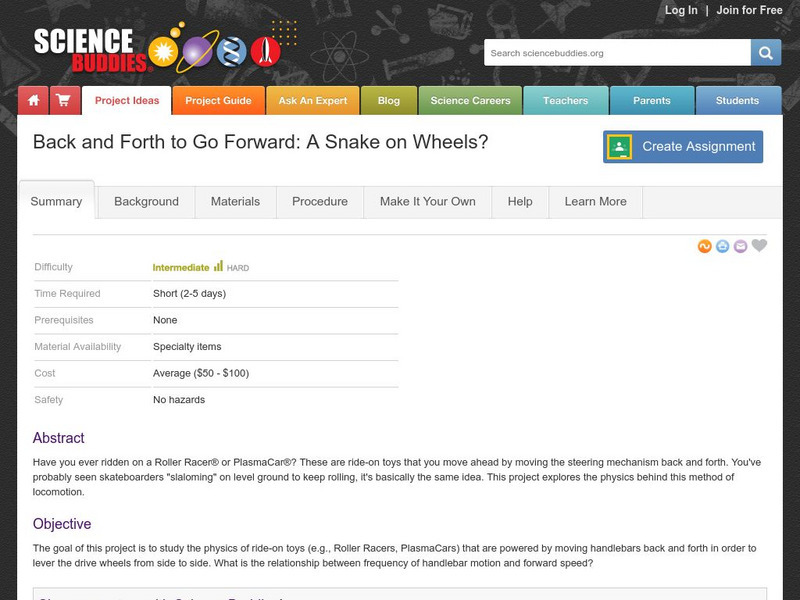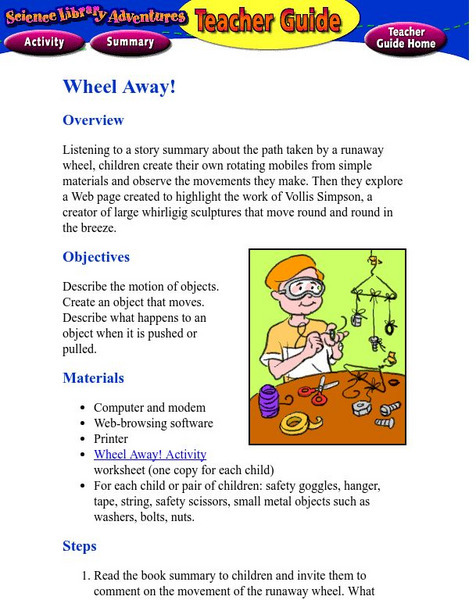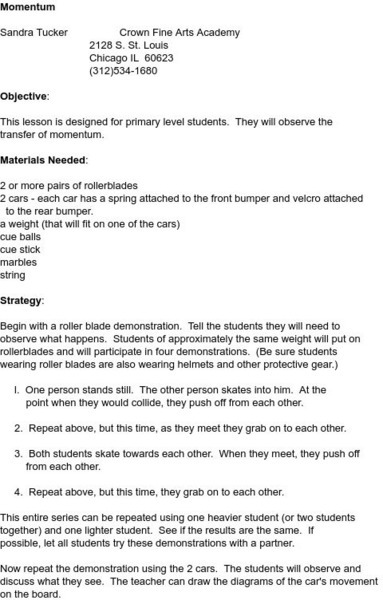Science Buddies
Science Buddies: Project Ideas: Paintball Ballistics
In this science fair project, use a paintball gun to compare the calculated vs. the actual range of a projectile. The Science Buddies project ideas are set up consistently beginning with an abstract, objective, and introduction, followed...
Science Buddies
Science Buddies: How Does a Hovercraft Work?
Riding on a hovercraft is like gliding on a cushion of air. Make your own mini hovercraft in this experiment to test how hovercrafts work.
Science Buddies
Science Buddies: Back and Forth to Go Forward: A Snake on Wheels?
Have you ever ridden on a Roller Racer or Plasma Car? These are ride-on toys that you move ahead by moving the steering mechanism back and forth. You've probably seen skateboarders "slaloming" on level ground to keep rolling, it's...
The Wonder of Science
The Wonder of Science: 3 Ps2 2: Predicting Future Motion
Examples of motion with a predictable pattern could include a child swinging in a swing, a ball rolling back and forth in a bowl, and two children on a see-saw.
PBS
Pbs Learning Media: Frames of Reference
Explore how different frames of reference affect your perception of motion in this interactive activity from the American Museum of Natural History.
Science Buddies
Science Buddies: How Does a Hovercraft Hover?
In this activity, you will get to build your own mini hovercraft. How will different amounts of air in the balloon affect how long the hovercraft hovers?
Science Education Resource Center at Carleton College
Serc: Investigating Movement of Tops
Students will raise questions about the way tops move by observing, through exploration/inquiry time, what they are made of, how the shape of each top affects its movement and what surface is best for a top to spin longest. As they...
Physics Aviary
Physics Aviary: Practice Problems: Timed Vertical Oscillation Problem
Find the period and frequency of an object oscillating on a spring. You will do this by timing enough oscillations to minimize your error to a low value. You will also use the frequency to find the spring constant of the spring based on...
Physics Aviary
Physics Aviary: Practice Problems: Vertical Oscillation Problem
In this program you will need to find the amplitude and frequency of an object oscillating on a spring. You will also use the frequency to find the spring constant of the spring based on the frequency.
Physics Aviary
Physics Aviary: Practice Problems: Work Done in Moving Charge
Determine the energy that must be added to a system to move a charge from one location to another in the vicinity of another charge.
Physics Aviary
Physics Aviary: Practice Problems: Speed of Charge From Repulsion
Determine the speed of a particle that has been repelled away from another particle with the same type of charge.
Better Lesson
Better Lesson: What Caused That Change in Motion?
Third graders will observe balls changing direction and determine what made the ball's motion change. They will also use a digital resource to change the position of a digital ball.
Education Place
Houghton Mifflin: Eduplace: Science Library Adventures: Wheel Away!
Learn more about the motion of objects through this resource. This site features a teacher's guide and activity sheet.
PBS
Pbs: Nova: Destroy the Castle
Design your own trebuchet catapult, launch the sandstone balls, and destroy the castle. Decide on the size of your projectiles, where to place your trebuchet, and other factors critical to success.
PBS
Peep and the Big Wide World: The Way Things Move
In this game, children move the track and drop a berry to move along the track to the bird.
PBS
Pbs Teachers: Scientific American: Life's Little Questions: Frozen Droplets
Investigate the use of stroboscopic disks to study actions that are too fast for the naked eye, and construct a stroboscopic viewer to demonstrate how a gated view of dripping water may produce the illusion of "frozen" motion.
Science and Mathematics Initiative for Learning Enhancement (SMILE)
Smile: Transfer of Momentum
This instructional activity designed for primary level students, describes the bodily-kinesthetic method of showing the conservation of momentum with students rollerblading, using cars, and colliding marbles.


